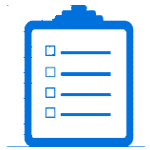Degree – Bachelor
Full Form – Bachelor of Commerce
Duration – 3 Years
Eligibility – 12th Passed

A title
Image Box text
Bachelor of Commerce
BCom full form is Bachelor of Commerce. BCom is a 3-year undergraduate degree. BCom offers diverse career options in the fields of Finance, Banking, and Accounting, making it a popular choice for Commerce students after class 12. To pursue a BCom course, students must score a minimum of 50% marks in their 10+2 with Commerce stream.
BCom Admissions are based on entrance exams such as CUET, PU CET, NPAT, etc. While the full-time BCom course remains the primary choice, alternatives like Distance B.Com and Online B.Com courses have become popular, as they offer flexible learning options. Students can also pursue integrated BCom courses like BCom LLB, BCom MBA, or BCom CMA. Integrated B Com courses combine business, legal and/or managerial expertise allowing holistic learning.
After completing a B Com course, freshers can earn around INR 3 LPA in entry-level jobs related to Finance or Accounting. They can also pursue professional courses like CA, CS, CMA, or MBA to upgrade their skills and earning potential. Pursuing professional courses after a Bachelor of Commerce can help graduates earn a more lucrative salary ranging between INR 5 – 10 LPA which increases with experience.
What is the Eligibility Criteria to do a BCom Course?
As different colleges have different criteria, some common eligibility criteria for B.Com admission 2024 are mentioned below.
- Candidates must have completed and passed class 12 or equivalent from a recognized board.
- The minimum percentage for B.Com admission varies from college to college. Delhi University’s cutoff for B Com admission ranges in the area of 99%, whereas, for some colleges, it can be a minimum of 45%.
- Students from any stream can apply for B.Com admission but, a candidate can get preference over candidates from other streams if he/she/zee has completed 10+2 with Commerce.
- Some colleges conduct entrance examinations for admissions to B.Com. Candidates qualifying in BCom Entrance Exams are given admission based on marks secured in these examinations.
Why Should You Study BCom?
- Students, after studying B.Com can explore opportunities in Finance and Banking fields. Many students enter the sales and marketing field after B.Com. With experience, there is huge scope in the Sales department in all sectors. Students who want to stick to the finance or commerce stream will also find huge potential.
- The Fintech market in India will reach INR 6.2 trillion by 2025, providing various opportunities for those in the Financial sector. Apart from the rising Fintech sector, there are Mutual Funds and Insurance, which provide varied opportunities within the Financial space.
- The banking sector has a tight grip on the financial sector of India. The total assets held by banks is USD 2.4 Trillion in India. All these assets will be given in credit by the banks to the citizens of India. Banks need people from commerce backgrounds to manage them efficiently. In FY21, USD 1487 Billion was extended as credit and USD 2.06 Trillion was deposited in banks.
Key Highlights of BCOM Course

Flexible Learning Mode:

Updated Course Curriculum:

Doubt clearing session:

Your One Stop Solutions

Fill The Basic Details
Get one step closer to your dream career with the right course.

Select Your Course
Help us know you better with basic information & few questions.

Explore Your Option
Don't limit yourself, explore top universities with our specially designed list

Compare & Get The Best
Compare top universities on different aspects like Student rating, Govt Approvals.
Admission Process
(How to Apply?)

Submit Form
Fill in and submit your application form online.

Expert’s Counseling
You will receive a call from our expert counselor

Choose University
Select the course & university according to your interest

Online Payment
You need to make a smooth online fee submission

Admission Confirmation
You will get an admission confirmation on your Email
Let's Clear up some doubts ?
Technical requirements may vary depending on the course and learning platform, but typically include a reliable internet connection, a computer or mobile device, and compatible software or web browsers. Specific requirements will be outlined in the course description or syllabus.
Yes, one of the advantages of online courses is that course materials are often accessible 24/7, allowing students to study at their own pace and convenience.
Online courses typically offer communication tools such as discussion forums, email, messaging systems, and live chat sessions where students can interact with instructors and peers. Instructions for accessing these communication channels will be provided within the course platform.
Yes, online courses typically have deadlines for submitting assignments, participating in discussions, and completing exams or quizzes. It's important to review the course syllabus or schedule to stay informed about important dates and deadlines.
It depends on the course and the institution offering it. Some online courses offer certificates of completion or professional development credits, while others may be eligible for transfer credit at colleges or universities. Check with the course provider or your academic institution for details on credit options.
Most online course platforms offer technical support services to help students troubleshoot issues with accessing course materials, navigating the platform, or using specific features. Look for contact information or help resources within the course platform for assistance.













